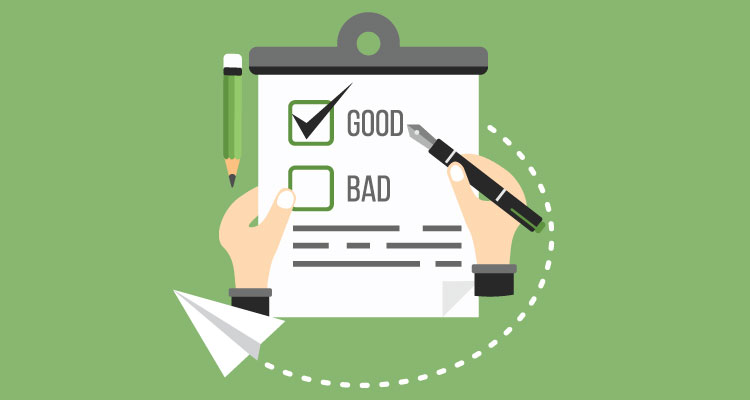Try all you might, but you’re going to receive a negative review – no matter what industry you’re involved in. I know it stings. But don’t take it personally. It’s just the world we live where customers can pull out their smartphone and quickly leave a review on sites like Yelp – even if they’re aren’t always right.
You may also be thinking that a negative review here and there won’t really affect your business.
Think again!
According to BrighLocal, via Search Engine Land, “Nearly 9 in 10 consumers have read online reviews to determine the quality of a local business.” Nielsen has discovered that 68% of customers trust the opinions that have been posted online. And, finally, a majority of these reviews happen to be negative, according to a survey conducted by American Express.
Reviews are important. They have the power to make or break the reputation that you’ve earned over the years and even decrease sales. Which is why you need to know how to properly respond to the negative reviews regarding your business.
Table of Contents
ToggleAutomate the Process
Before you respond to any negative reviews, you should invest in a service like BrightLocal, ReviewPush, or Yext. These are companies that monitor online reviews so that you’ll receive a notification as soon as someone leaves a review on sites like Yelp and Google.
You can also enter your business name into Google Alerts and receive free notifications when your business gets mentioned. Additionally, Hootsuite and Tweetdeck are social media management tools that will alert you when someone mentions your business on social media. In fact, social media can be a great way give your customer service a little boost.
Once you’re aware of a negative review, you can begin to plan your next course of action…
Respond To Everything…After You’ve Calmed Down
Yes. You should respond to review – even if it’s one of the most insane or hurtful comments that you’ve ever read. Don’t ask for the review to be removed. Take a brief period of time to cool down and respond to any negative review regarding your business.
No matter how furious you are, restrain yourself from replying to negative reviews when you’re worked up. Chances are that you’re going to say something that you’ll regret. And even if you delete the comment later on, you should realize by now that nothing ever really disappears from the internet.
Don’t Get Defensive
Responding to negative reviews is not the time to stand your ground and defend your business. Publicly listing all of the reasons why the customer is wrong and your business is being wrongfully accused isn’t exactly going to put you in the good graces of other customers.
Let the quality of your product or service, reputation, and customer service defend your business instead.
Own Up to the Mistake and Make Amends
Whether you like it or not, you have to acknowledge the review and admit that there was a mistake. Even if you didn’t make a mistake, it’s easier to offer a sincere apologize and move on.
Unless there’s something else going on, the average customer isn’t going to blast your business for no good reason. In their eyes, they didn’t have a great experience with your business. Don’t argue with them. Just apologize.
After issuing your apology, find out how you can make the customer happy. If they aren’t satisfied with your product or service, ask them if they would like a refund or replacement. If the customer accepts the offer, they may actually change or update the review.
Keep It Brief
There’s no need to drag this out longer than it has to be. Issue the sincere apology on the channel where the comment was originally left and ask the customer how you can make things right. If there’s still an issue, take the conversation to a different channel like through email, a direct message, or a phone call. Publicly continuing this squabble could have legal consequences, as well as potentially harm your brand’s reputation.
Turn This Lemon Into Lemonade
Believe it or not, there’s actually a silver lining to negative reviews. It’s a chance for you to improve your customer service and overall business. Let’s say that you’re dealing with an upset customer. You were empathetic and illustrated to the reviewer that you genuinely want to make them happy. That’s a clear message to your other customers that you’re a brand that actually cares about them and want them to have a great experience.
Furthermore, when handling negative reviews, it may be a wake up cool for you to correct an actual problem on your end. In a way, it’s essentially free consumer research. The feedback you receive from reviews is priceless information that can guide you into improving your business. Maybe you’re charging too much for your product or your customer service isn’t all that desirable. Without those negative, you may have kept making those honest mistakes.














